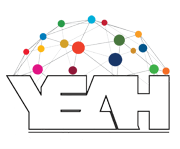
Subscribe to RSS Feed (Opens in New Window)
| 2021 | ||
|---|---|---|
| Wednesday, April 21st | ||
| 1:05 PM |
Session 1G New Caledonia: Small Island State Biodiversity and Land Use Change Gloria Cao, Colorado State University 1:05 PM - 1:01 PM The French territory of New Caledonia is a hub of unique terrestrial and marine biodiversity, and serves as a hub for nickel mining, pearl harvest, and tourism. These industries intersect within the region's personal wellbeing and France's economic interests. In addition, New Caledonia is subject to the vulnerabilities of small developing island states, including the threat of invasive species and inordinate effects of global climate change. Because of this, native endemic species, such as the land-dwelling kagu are at a greater risk of extinction due to deforestation and habitat fragmentation. Terrestrial industrialization also poses a multifaceted threat to marine ecosystems. |
|
| 1:15 PM |
Session 1G Denver Urban Beaver Conservation and Education Claire Silvestre, Colorado State University 1:15 PM - 1:24 PM Urban Conservation and Education will be a big part in creating more sustainable cities and communities. The story map will present data found in the urban areas around Denver of Beaver activity. Utilizing GIS mapping software and community applications such as iNaturalist will help develop a better understanding of where Beaver's can be found. The story map will then follow into developing educational pieces for students. The aim is to create lesson plans that will teach students how to be involved community members, therefore helping them become change leaders for urban wildlife protection. |
|
| 1:25 PM |
Session 1G Identifying Elephants in Maasai Mara using the SEEK Method Angie Casini Ropa, Colorado State University 1:25 PM - 1:34 PM Our team is identifying individual elephants in the Maasai Mara ecosystem in Kenya to support elephant conservation, inform population monitoring,and develop population estimates. Were searched the ecological roles, histories and interactions of the African elephant and learned how to apply the SEEK method to identify these animals. We will address how to use the SEEK method, the importance of conservation, and creatinga database for these individuals based on the SEEK method using "elephantbook", a platform that allows users to apply SEEK codes to individual elephants. |
|
| 1:35 PM |
Session 1G Online Purchasing Environmental Impacts Grace Turner, Indiana University 1:35 PM - 1:44 PM Online purchasing has negative effects on the environment. Some effects can include ocean pollution with plastic and other wastes and then the additional waste that comes from shipping products. According to a research done in 2013 found that the traditional shopper tends to have alower CO2 footprint, at least when it’s compared to many different types of online shoppers. When it comes to online shopping people who order express delivery should be made aware of the impact they will make. Also, packaging should be made more efficient and include less plastics that would eventually end up in the ocean. |
|

